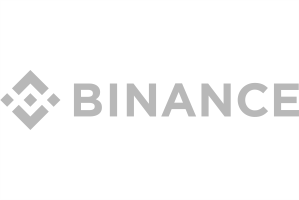To operate legally, Portuguese companies in the virtual asset niche are required to obtain a Portugal crypto license. Thus, this key authorization demonstrates the legitimacy of the company and its compliance with regulatory standards. In addition, no minimum authorized capital is required, no declaration of cryptocurrency assets is required, and no income tax is paid for individuals.
Virtual Asset Service Providers (VASPs) are companies willing to provide cryptocurrency-related services. As a guarantee of compliance with anti-money laundering and counter-terrorist financing (AML/CFT) standards following EU directives, they must obtain a license from the Bank of Portugal.
Crypto license Portugal holders can engage in the exchange of virtual and financial assets, conversion of virtual currencies, transfer, and custody management. In order to successfully obtain cryptolicense in Portugal, you also need to set up a local company and open a business bank account.
Advantages of Obtaining a Crypto License in Portugal
No Minimum Capital Requirement
The absence of a mandated minimum share capital for Portugal cryptocurrency exchange license applicants benefits small and medium-sized businesses, setting Portugal apart from many other countries.
Freedom with Crypto Assets
Licensees enjoy the liberty to manage their cryptocurrency holdings without declaring these assets, streamlining operations and enhancing investor appeal.
Digital Asset-Friendly
Ranked among the most welcoming nations for digital assets in 2020-2021, Portugal allows the official registration of cryptocurrency businesses with government approval.
Tax Exemptions in Madeira
Entities under the IBCM regime enjoy a 0% tax rate on dividend payments and income from subsidiaries, provided certain conditions are met, facilitating a tax-efficient structure for international operations.
Madeira’s Unique Status
This autonomous region within Portugal offers distinct tax and corporate advantages, including a low-income tax rate under the IBCM regime until 2027, with a potential extension to 2035.
Regulation of Crypto Business in Portugal
With a particular focus on anti-money laundering and countering the financing of terrorism (AML/CFT), Portugal has established a regulatory framework for cryptocurrency businesses. The promotion of the growth of cryptocurrencies is shown by the fact that over the past decade, Portugal’s favorable environment for IT and cryptocurrencies has attracted more and more companies. The exemption of crypto investments in Portugal from income tax is another important aspect.
Cryptocurrencies are not recognized as legal tender and are not considered regular money or electronic money in Portugal. Following Directive 2009/110/EC (EMD2), the European Banking Authority has defined specific conditions under which virtual currencies can be considered “electronic money.”
Key Regulatory Bodies
- Banco de Portugal — the central authority for virtual currency regulation.
- CMVM (Securities Market Commission).
- ASF (Insurance and Pension Funds Supervisory Authority).
With a focus on consumer and investor protection, the Bank of Portugal has taken a cautious but proactive stance on cryptocurrencies since 2013 without rushing for premature regulation. In September 2020, the supervision of entities providing services with virtual assets was launched. In accordance with EU directives on anti-money laundering and countering the financing of terrorism, these include exchange, transfers, and safe custody.
Although the Bank of Portugal closely monitors compliance with AML/CFT requirements in the crypto sector, this regulatory approach ensures that it does not extend its supervision to prudential or market conduct controls.
Cryptocurrency License in Portugal and Georgia
Companies are obliged to fulfill several steps to obtain crypto exchange license in Portugal. Among these obligations are certified documents of the founders, an apostilled power of attorney, proof of citizenship of the founders, and provision of local office space. In addition, at least one Portuguese director must be present, and an anti-money laundering officer must be appointed.
Considering Georgia as an option for obtaining a crypto license, it is envisaged to register a business entity with owners of any nationality, disclose information about the owners. Directors and beneficiaries must have no criminal record, as well as payment of a license fee of about USD 2,000 and implementation of anti-money laundering and counter-terrorist financing policies. Upon completion, companies must undergo regular audits and maintain financial statements.
Requirements
- Provide certified proof of all founders’ citizenship.
- Find and sign a lease for a local office space.
- Ensure all founding members’ documents are certified by a notary.
- Obtain an apostille for a power of attorney needed for company registration.
- Ensure at least one company director holds Portuguese citizenship.
- Formulate policies for cryptocurrency transaction control and other required legal documents.
- Gather all necessary documents into a submission package.
- Designate an officer responsible for anti-money laundering (AML) compliance.
- Apply for the cryptocurrency license Portugal.
Step-by-Step Guide to Obtaining a Portugal Crypto License
Preliminary Document Collection and Tax ID Approval
- Choose a company name.
- Provide passport copies and utility bills for all shareholders and directors.
- Submit CVs of shareholders and directors.
- Outline a brief business model (1-2 pages).
- Grant power of attorney and a representation statement.
Registration and Licensing Process
- Secure a Tax Identification Number (NIF) for the company.
- Formulate the company’s articles of association.
- Draft and certify the power of attorney for company and bank account operations.
- Register the company name and incorporation at the registry office.
License Application
Apply for the Portugal crypto exchange license, following the regulatory guidelines.
Issuance of Corporate Documentation
Comply with the Central Registry of Beneficiary Effective (RCBE) requirements.
Corporate Account Opening
- Analyze and select suitable banks/EMIs.
- Prepare and submit detailed documentation, including AML policies and business descriptions.
Portugal Crypto Company Registration
- Provide three unique company names to ensure compliance with Portugal’s regulation against name repetition.
- Specify the types of economic activities the crypto company will engage in.
- Decide on the minimum capital, noting the legal minimum is 1 euro.
Documentation
- Apostilled or legalized passports of partners/shareholders and founders.
- Recent utility bills or bank statements (within 3 months) for proof of address.
- Documents showing tax residency and identification number.
- No Criminal Record Certificate (for all beneficiaries/founders).
- Compliance documents for Anti-Money Laundering regulations.
Registration Process
- Identify and plan future business activities.
- Select, verify, and reserve a commercial name.
- Gather information on beneficiaries, founders, and managers.
- Secure a registration address.
- Prepare foundational and registration documents.
- Compile and submit the required document package for registration.
- Complete state registration upon approval.
- Register for tax and employment.
- Acquire any additional licenses needed for regulated activities.
Post-Registration Requirements
- Following company registration, opening a bank account requires:
- Company establishment agreement.
- Extract from the Commercial Register.
- Beneficiary register extract.
- Account manager’s parents’ names.
- Mobile phone and email address.
Understanding Taxation for Cryptocurrency Companies in Portugal
Raising some questions and uncertainties, the tax landscape for cryptocurrencies in Portugal remains largely unregulated. The Portuguese Tax Authority (Autoridade Tributária) has divided tax considerations into IRS, IRC, and VAT segments, setting out the tax treatment of cryptocurrencies in two key documents: No. 14910 and Case No. 5717.
IRS Tax Environment
Categories of income:
- Category B: Income from corporate or professional activities.
- Category E: Capital income.
- Category G: Capital gains.
Income from the sale of cryptocurrency by individuals is not taxable. Business income under category B is considered to be regular sales income and is subject to taxation at a progressive rate.
IRC Tax Environment
Lacks specific guidelines on cryptocurrency taxation.
Profits are taxed based on net income and financial accounting, implying corporate income from cryptocurrencies falls under taxable income.
VAT Concerns
Cryptocurrency transactions are seen as services but are currently VAT-exempt, aligning with certain legal provisions.
Regulatory Insights
Cryptocurrencies are regulated to prevent money laundering and terrorist financing, even though they are not recognized as legal tender.
The government’s openness to blockchain technologies is demonstrated by introducing the GOVTECH token in 2018.
In March 2020, the Portuguese regulatory sandbox was created and aimed to promote the development of cryptocurrency startups. In this way, they are allowed to test new products in a safe, legal space.
Known as the Anti-Money Laundering and Counter-Terrorist Financing Law, implementing the Fifth EU Directive (2018/843) into Portuguese law through Law No. 58/2020 and Law No. 83/2017 was a significant milestone in regulatory policy.
FAQ
What challenges may arise when applying for a crypto license in Portugal?
With additional banking concerns due to the volatility of cryptocurrencies and strict AML/KYC requirements, the process of obtaining a crypto exchange license Portugal can be complicated and time-consuming. To successfully cope with this task, you can always contact Prifinance experts.
Are cryptocurrencies taxed in Portugal?
Businesses pay income tax of up to 28%, together with the corresponding VAT on transactions, while individuals enjoy tax exemption on cryptocurrency income. In addition, additional benefits are available to resident investors.
Do I have to report my cryptocurrency holdings in Portugal?
There is no general requirement to declare cryptocurrency transactions in Portugal. The only exceptions are those exceeding a certain threshold or those falling under the anti-money laundering law, which requires reporting suspicious activity.
Can a non-resident own a cryptocurrency company in Portugal?
Yes, non-residents can own cryptocurrency companies in Portugal. The Banco de Portugal licensing process is identical for both residents and non-residents.








